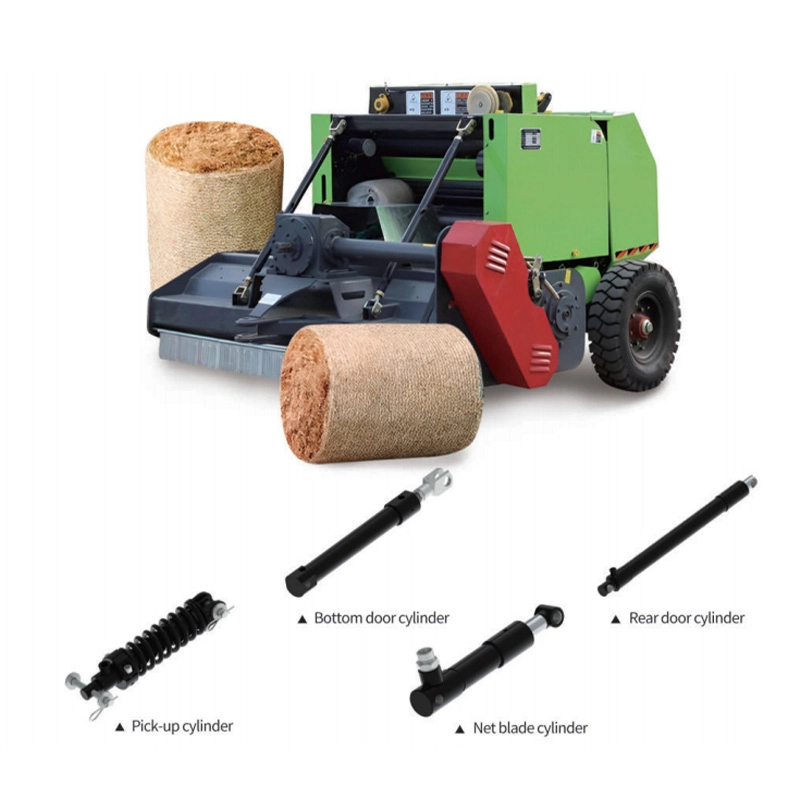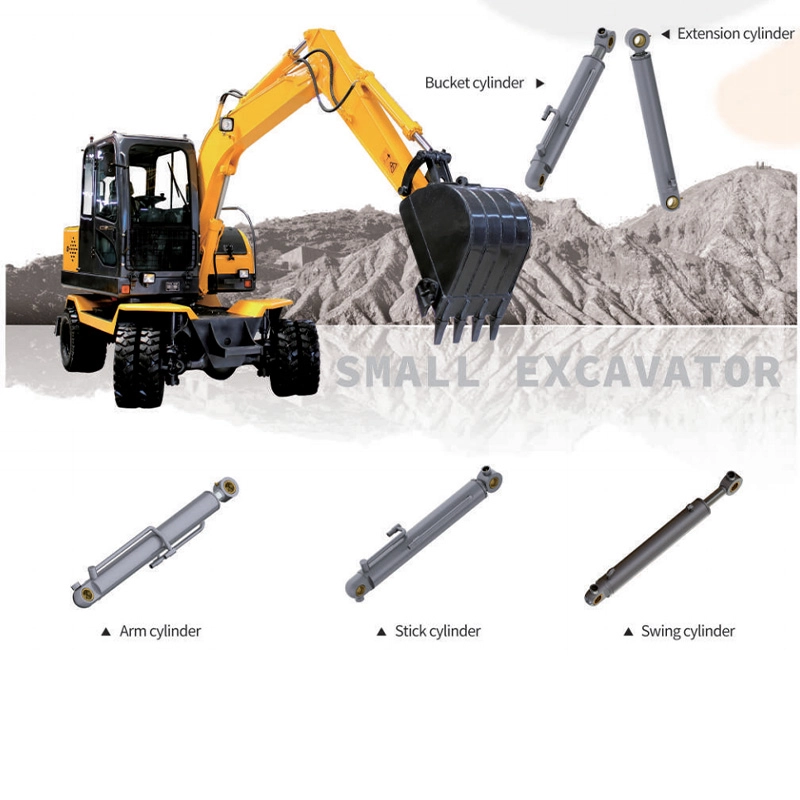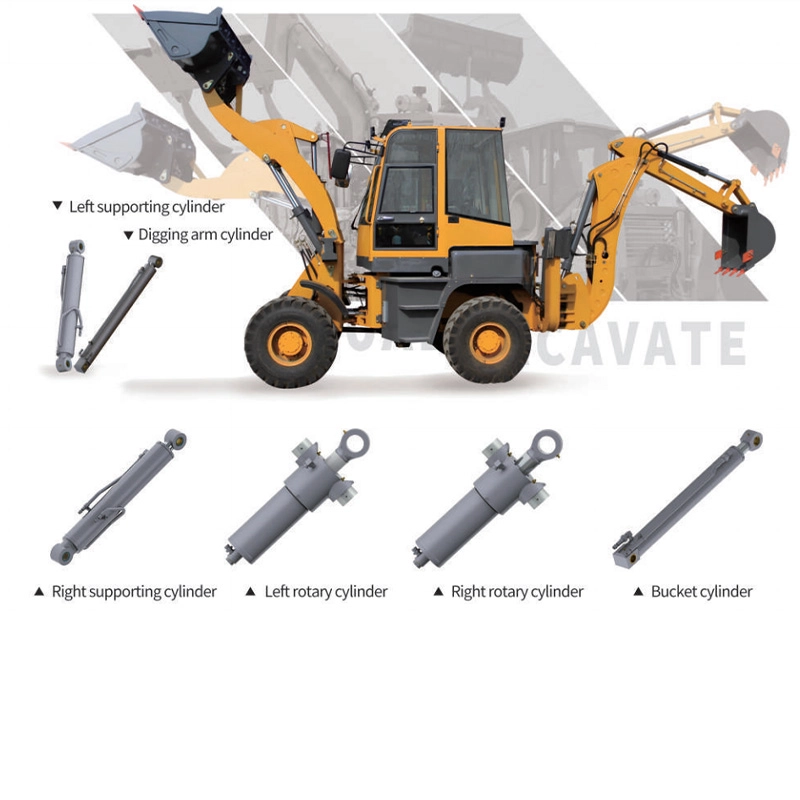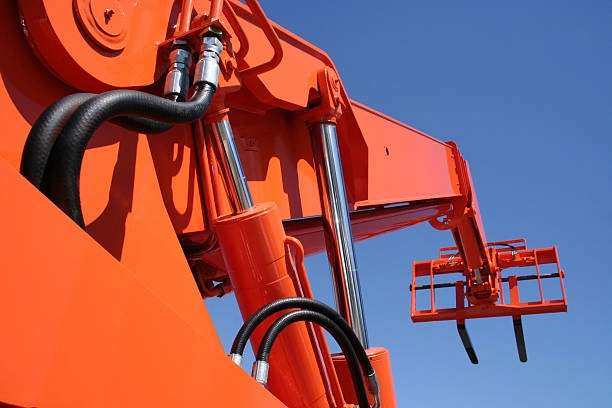
Why Bore Size and Rod Strength Matter in Agriculture
The Basics of Hydraulic Cylinders
Hydraulic cylinders are the working muscles inside tractors, harvesters, and other farm tools. They take the pressure of oil and turn it into straight motion. The bore size, which means the inside diameter of the barrel, and the rod size, which means the thickness of the piston rod, decide how much weight the machine can carry.
A bigger bore gives more area for the oil to push. More area means more lifting strength. The rod is the part that moves the load. If it is weak, it may bend or snap. Both parts together set the safe load range for farm equipment.
What Bore Size Means for Load
When the bore grows wider, the force grows stronger. In farming, this is what helps a tractor lift a heavy plow or a loader move soil without trouble. If the bore is too small, the machine may struggle and wear down fast.
Why Rod Strength Cannot Be Ignored
The rod moves in and out, pushing or pulling weight. If the rod is too thin, heavy farm loads can twist it. Once it bends, the cylinder cannot work well. For hard jobs like tilling, a thicker rod makes the work safer and smoother.
Bore Size and Farm Machinery Performance
Matching Cylinder Bore to Workload
The bore must match the task. A small bore moves quicker but makes less force. A larger bore gives more power but may be slower. Machines that lift hay bales need more bore area, while harvesters that cut crops may need speed.
Load Distribution in Soil and Field Work
Farm soil is not even. Plows and cultivators meet rough resistance. If the bore size is too small, the cylinder will strain, heat up, and wear fast. A larger bore spreads the load better and keeps machines running longer.
Energy and Efficiency
A correct bore size saves energy. Too big wastes oil, too small puts stress on the pump. Balanced design reduces fuel use and helps the machine stay efficient season after season.
The Role of Rod Strength in Heavy Loads
Preventing Bending and Fatigue
A thin rod bends under pressure. Once bent, it weakens and risks breaking. Choosing the right diameter keeps rods straight and extends their life, even under long harvest hours.
Material Choices for Stronger Rods
Rod strength depends on what it is made of. Chrome plated steel resists rust, scratches, and dirt. On farms, rods face mud, dust, and stones. Strong metals are needed to keep them working.
Seal and Rod Interaction
The rod and seal work together. If the rod is strong, seals last longer. This stops oil leaks and protects the system. Leaks cost money and slow work, so stronger rods help save both.

Challenges Farmers Face with Load Capacity
Signs of Cylinder Stress
Farmers notice when a cylinder makes odd sounds, shakes during movement, or runs too hot. These are signals that bore size or rod strength may not match the job.
Overloading Risks
Using a cylinder above its rated limit can cause cracks, leaks, or rod failure. On farms, this happens when machines are used for jobs heavier than they were designed for.
Maintenance Pressure
If the bore or rod is wrong, machines break more often. More leaks, more rod wear, and more time in the shop mean less time in the field.
Customization for Better Load Performance
Why Custom Cylinders Help Farmers
Every farm is different. Custom cylinders let bore and rod sizes fit each task, from lifting heavy implements to driving harvest tools.
Shining Hydraulic’s Custom Options
Shining Hydraulic makes cylinders that can be tailored to each need. Clients can pick the Color, Material, Seal, and Piston Rod. These options make sure the cylinder matches both the job and the machine.
Long Term Benefits of Customization
Custom designs lower downtime and save energy. They also make machines safer. For farmers, this means more hours of smooth work and fewer costly repairs.
Choosing the Right Partner for Farm Cylinders
Quality and Testing Standards
Cylinders must pass tests for leaks, pressure, and endurance before they go to the field. Strong testing ensures the bore and rod will not fail under real farm loads.
Service and After Sales Care
Good support is as important as the product itself. Shining Hydraulic offers full service, with guidance, spare parts, and repair help. This keeps machines ready to work when needed most.
Experience in Agricultural Applications
Suppliers with long experience understand farm needs better. Clients can learn about them and see how their knowledge across industries benefits agriculture.
The Future of Bore and Rod Design in Agriculture
Advanced Materials and Coatings
New alloys and coatings will give rods and bores even greater strength. This means higher load capacity without adding extra weight.
Smart Monitoring in the Field
Sensors are being added to watch rod strain and bore pressure. They can send early warnings to farmers before a breakdown happens.
Sustainable Farming and Hydraulics
Eco friendly oils and greener materials are on the rise. Stronger bore and rod designs will help machines last longer while supporting more sustainable farming.
FAQ
Q: How does bore size affect farm machine performance?
A: A bigger bore makes more lifting power, while a smaller one moves faster. The right size gives both strength and speed.
Q: Why is rod strength important in agriculture?
A: Strong rods keep from bending or breaking under heavy loads. They also protect seals and cut down leaks.
Q: Can hydraulic cylinders for tractors be customized?
A: Yes. Farmers can choose bore size, rod size, and more. Shining Hydraulic offers a Hydraulic Cylinder for Tractor that can be made to fit farm needs.
Q: What are signs that a cylinder is overloaded?
A: Strange noises, slower speed, higher heat, or oil leaks often show that a cylinder is working above its safe load.
Q: How do I make sure I choose the right supplier?
A: Look for suppliers with strong testing, farm experience, and good service. Reliable partners reduce costs and downtime.




